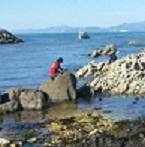Where Do Engineers Study Abroad?
Cultural competence is a key to building effective transnational relationships, solving problems around the world, and competing successfully in the international job market. A study abroad experience can help you:
- Experience and understand a different culture—historical, social, political, and economic perspectives;
- Reinforce theory with real-world experience to prepare to work and lead in a global economy;
- Learn and share new approaches to engineering education and problem solving;
- Increase access to knowledge and ideas as a basis for personal and professional development;
- Build relationships and common understanding to further global well-being and world peace;
- Develop language skills- be bilingual or multilingual.
Prism Magazine, published by the American Society for Engineering Education, highlights the value of international experiences for engineering students.
The schools below represent just a few of the institutions that engineering students have studied at in the past. While many students take technical courses, others seek to satisfy liberal studies requirements while abroad. Students are encouraged to consult with college advisors about the appropriateness of specific plans of study for their major. More information about the programs below, as well as many other programs, is available from the Office of Global Learning and on the Experience Cornell website.
- University of Cantabria Engineering Exchange Program
- Hong Kong University of Science and Technology (HKUST) Engineering Exchange Program
- Technion-Israel Institute of Technology Engineering Exchange Program
- Technical University of Denmark (DTU) Engineering Exchange Program
- University of Comillas Engineering Exchange Program
- AIT: Aquincum Institute of Technology
- Boston University: Geneva Physics Program
- CASA Brazil
- CASA Dublin: Trinity College Dublin
- CET: Florence
- CIEE: Barcelona
- CIEE: Paris, Open Campus
- City University of Hong Kong (CityU)
- DIS: Semester in Copenhagen
- DIS: Semester in Stockholm
- Georgia Tech-Lorraine
- King's College London
- National University of Singapore (NUS)
- National University of Taiwan (NTU)
- Nilgiris Field Learning Program (NFLP)
- Queen Mary, University of London
- Tecnologico de Monterrey (ITESM)
- University of Auckland
- University College London
- University of Copenhagen
- University of Edinburgh
- University of Sydney
- Yonsei University
Testimonial by
Although the AIT Budapest program is specifically designed for computer science and information science majors, it offers a variety of classes that you can choose from. In fact, aside from the typical software-orientated coding classes such as app development or algorithms, AIT also offers design, business, theory, and cultural courses such as Hungarian music, language, and cinema. What’s unique about the courses at AIT is that the teaching style is very hands-on and application-based.
— Peggy Hsu '16
Testimonial by
New Zealand is geologically gorgeous, I enjoyed seeing millions of years of history come to life when I mapped deformation in Southern Alps. We spent five weeks in the field and learnt the use of remote sensing data to assist finding Alpine fault evidence in a rain forest. We assessed avalanche, natural dam failure, flooding, glacial advance and other hazards along the Alpine Fault.
— Tanvi Chheda '16




